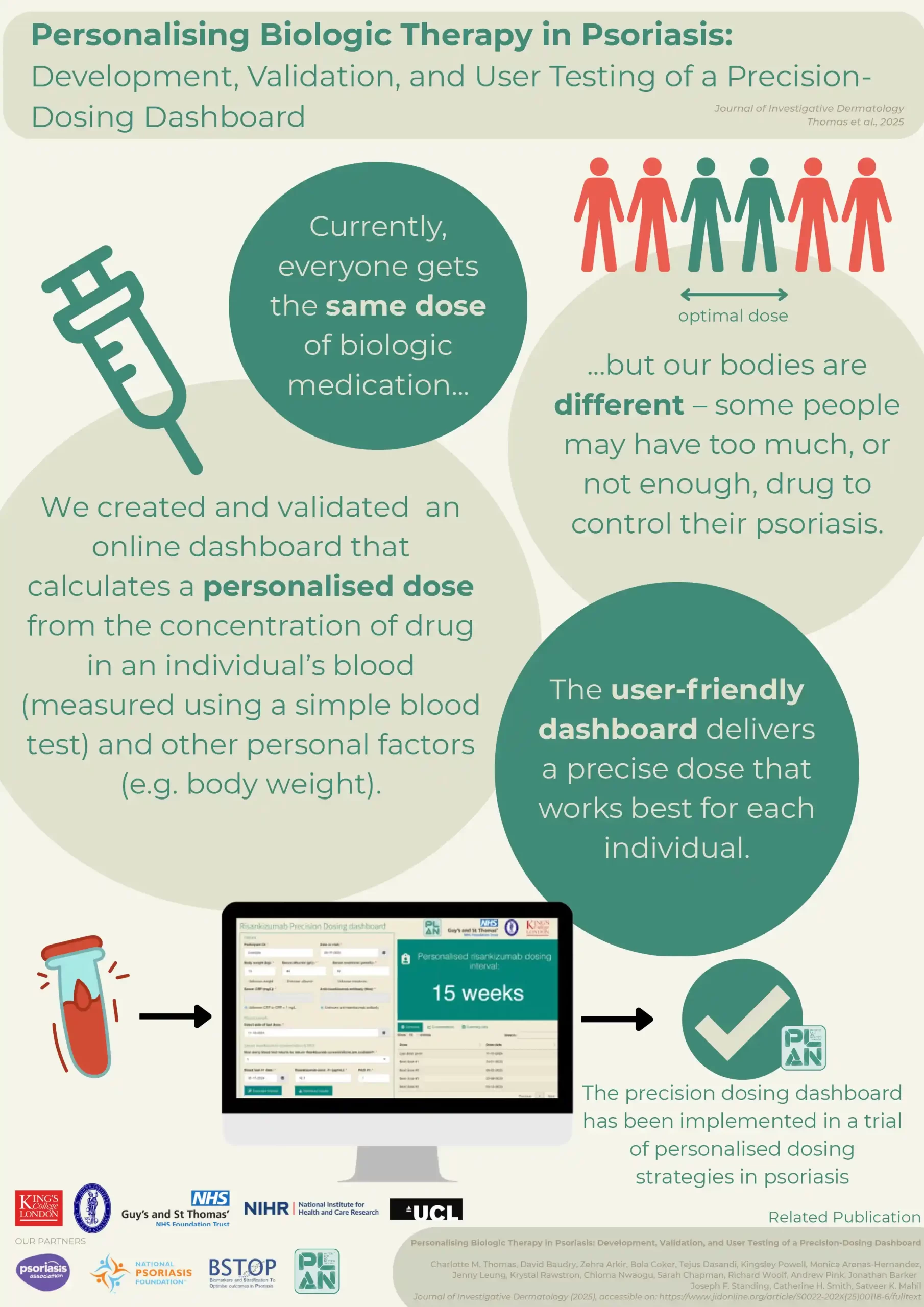
At A Glance Summaries
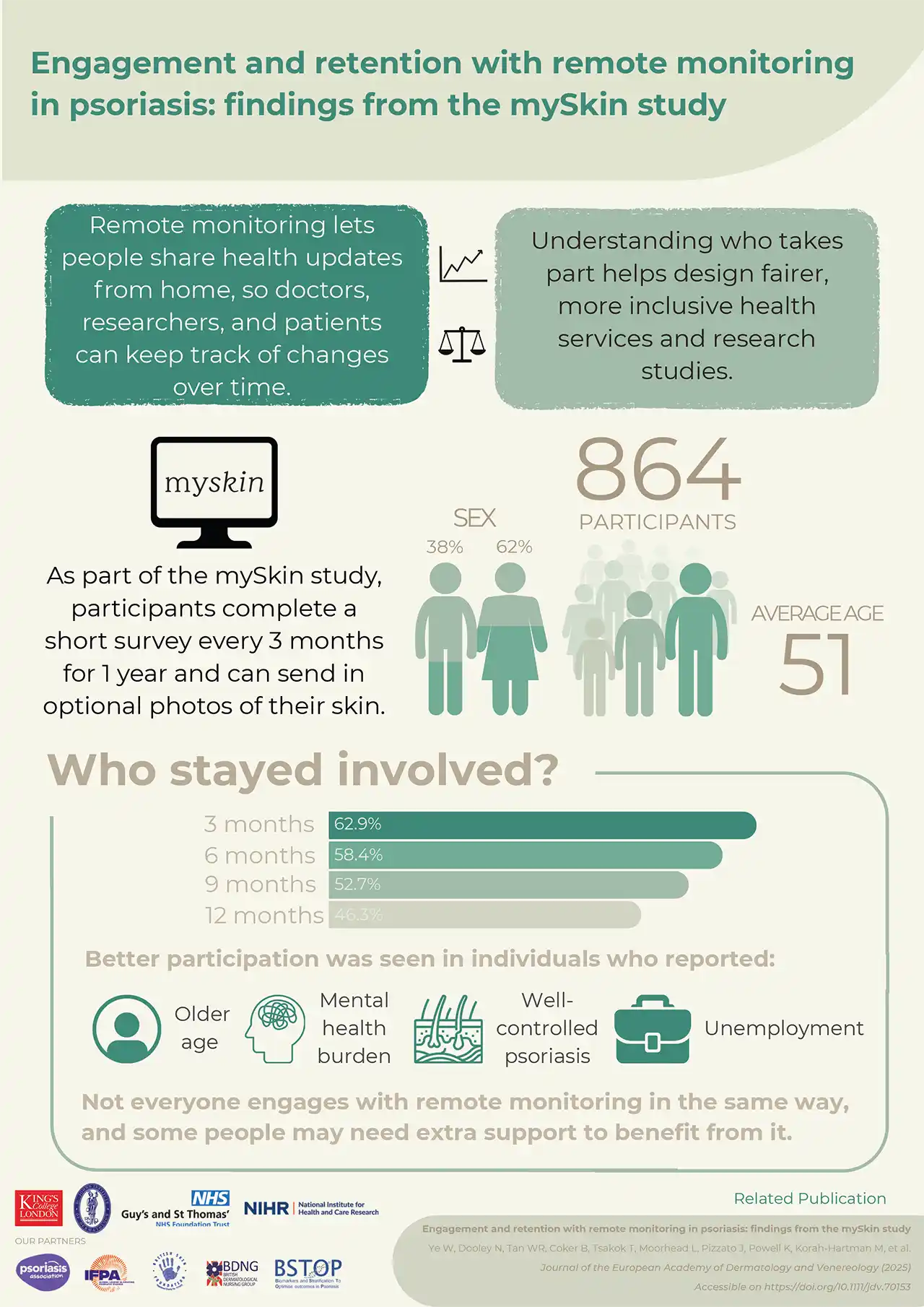
29.10.25
Engagement and retention with remote monitoring in psoriasis: Findings from the mySkin study
Remote monitoring allows people to share updates about their health from home, so doctors, researchers and patients can track changes in real time. With advances in digital technology, this approach is becoming more common in both healthcare and research. Understanding who is more or less likely to stay involved…
Read more
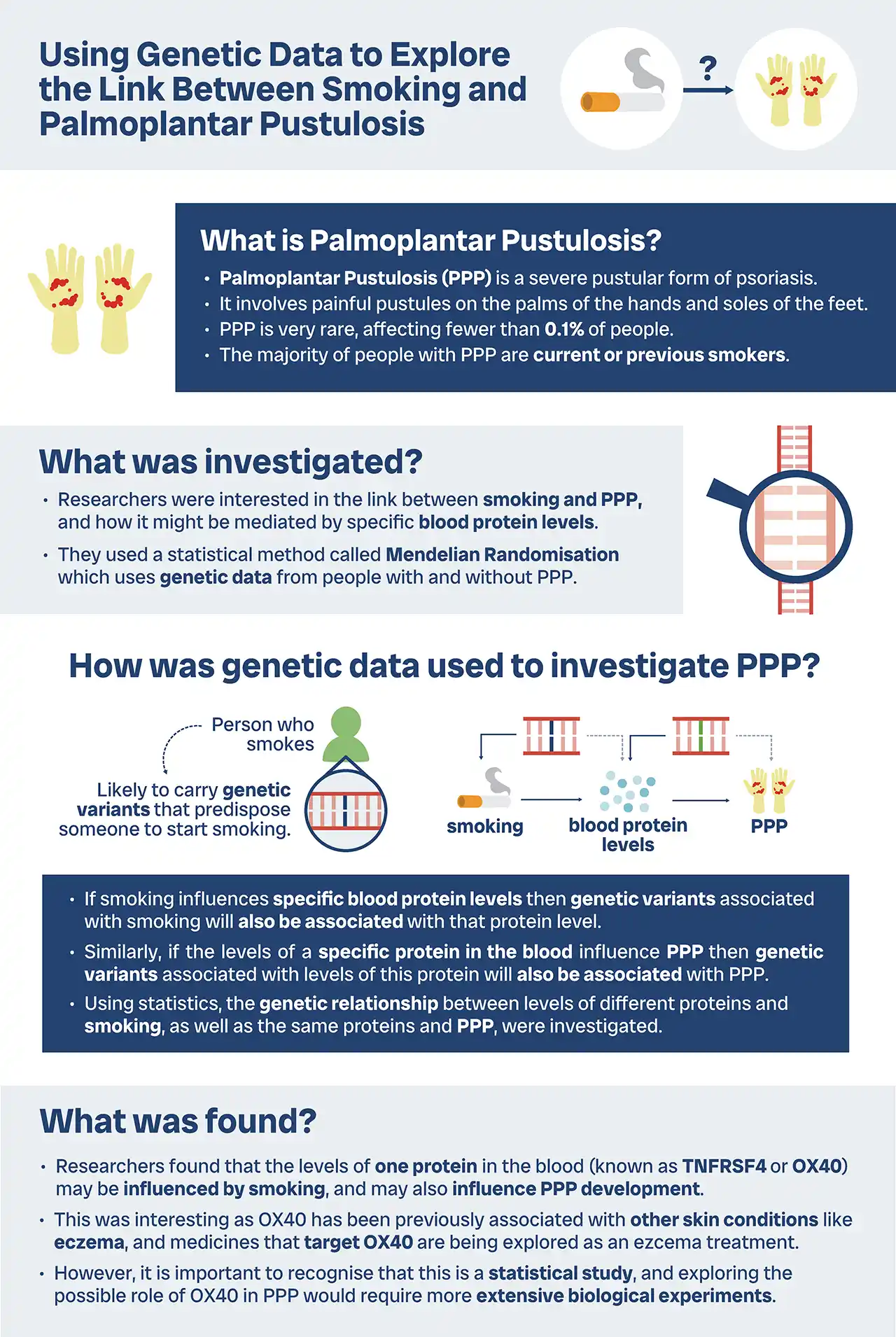
17.07.25
Using Genetic Data to Explore the Link Between Smoking and Palmoplantar Pustulosis
Palmoplantar pustulosis (PPP) is a severe and rare pustular form of psoriasis that involves painful pustules on the palms of the hands and soles of the feet. The majority of people with PPP are current or previous smokers; researchers wanted to explore this association using genetic data from people with and without PPP…
Read more

16.07.25
Stigma driving depression in alopecia patients, rather than illness severity
Alopecia areata is a complex autoimmune condition, where a person’s immune system mistakes their hair follicles as a foreign body and attacks them. It often starts with isolated patches of hair loss, commonly in one or more coin-sized (usually round or oval) patches on the scalp and/or across the body…
Read more
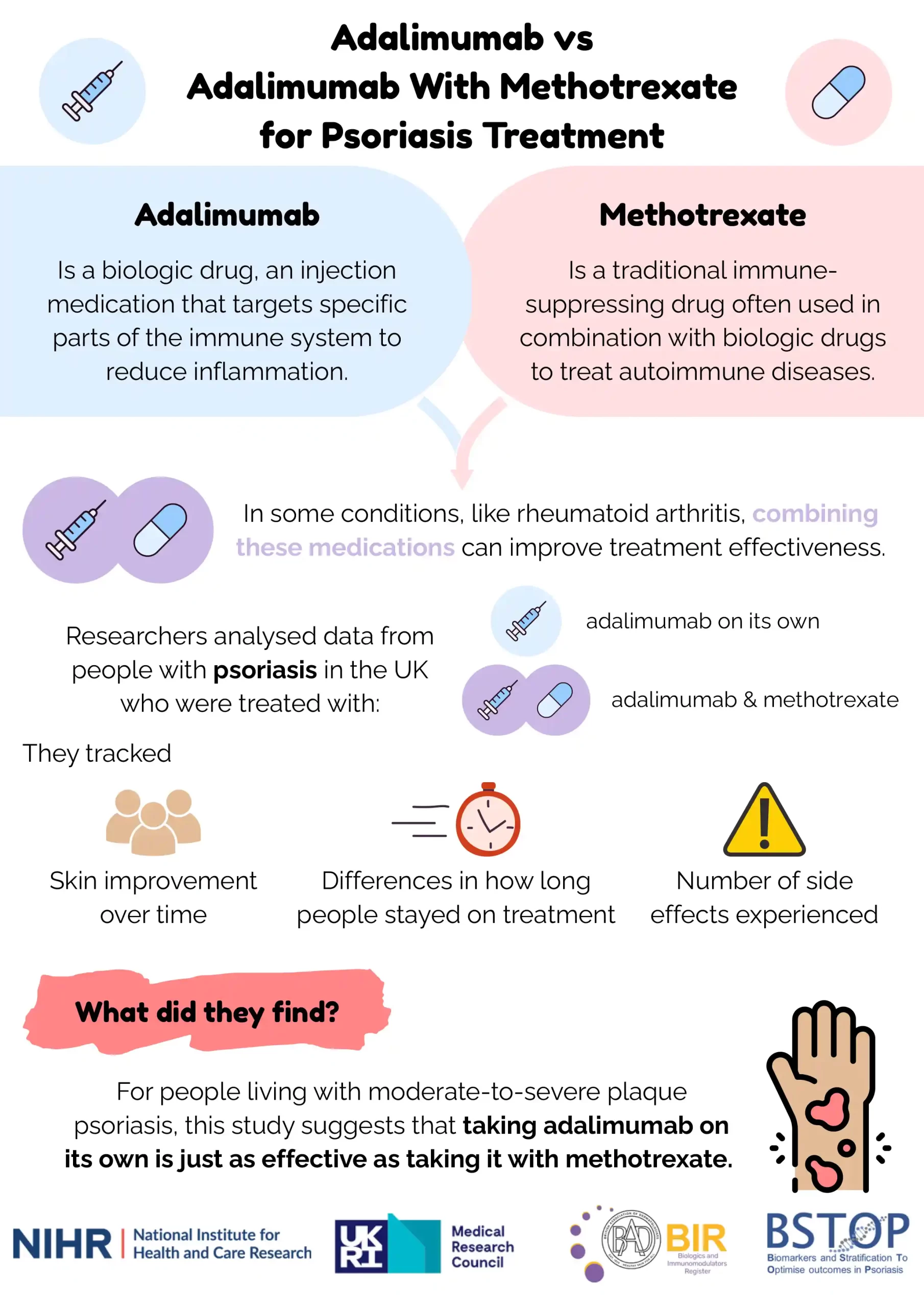
04.06.25
No evidence for higher effectiveness of adalimumab and methotrexate combined therapy compared to adalimumab-only treatment in psoriasis
For people living with moderate-to-severe plaque psoriasis, this study suggests that taking adalimumab on its own is just as effective as taking it with methotrexate. This is important because methotrexate can carry additional risks…
Read more

04.06.25
Gene–Environment Interaction Affects Risk of Eczema
Having a pet dog in the family home could help protect a child from developing eczema, especially if they are genetically predisposed to this condition. Using population research to study 300,000 people, and detailed studies on skin cells in the lab, we have shown molecular signals from dog allergen can dampen down inflammation in human cells…
Read more
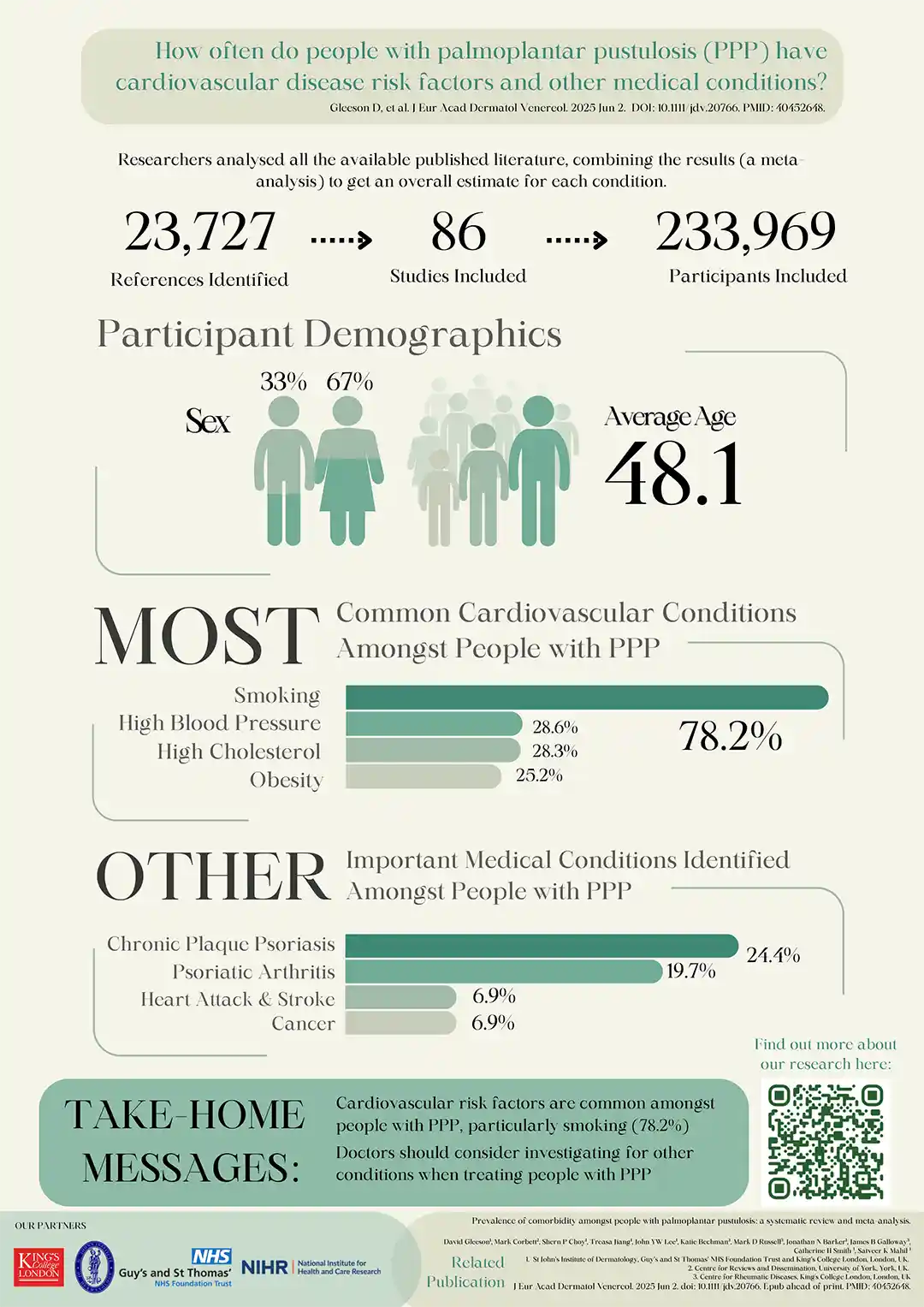
02.06.25
How often do people with palmoplantar pustulosis (PPP) have
cardiovascular disease risk factors and other medical conditions?
Palmoplantar pustulosis (PPP) is a rare, debilitating condition, causing painful, red skin with pus-filled lumps on the hands and feet that are difficult to treat. It affects roughly 10 in 100,000 people in the United Kingdom and is a type of psoriasis…
Read more

31.05.25
Immune markers in blood could predict toxicity and treatment response to immunotherapy in melanoma
Immunotherapy is a type of treatment that helps activate the body’s immune system to fight cancer cells and it has transformed the outlook for many cancer patients, including those with melanoma. However, for some people, the treatment can trigger serious immune-related side effects that are severe enough to stop therapy altogether…
Read more

27.05.25
Central body fat more strongly linked to psoriasis risk than overall fat, large UK study shows
Psoriasis is a long-term inflammatory skin condition that affects millions of people and can significantly impact quality of life. While previous research has shown that higher levels of body fat increase the risk of developing psoriasis, it has remained unclear whether specific patterns or locations of fat matter more than others….
Read more
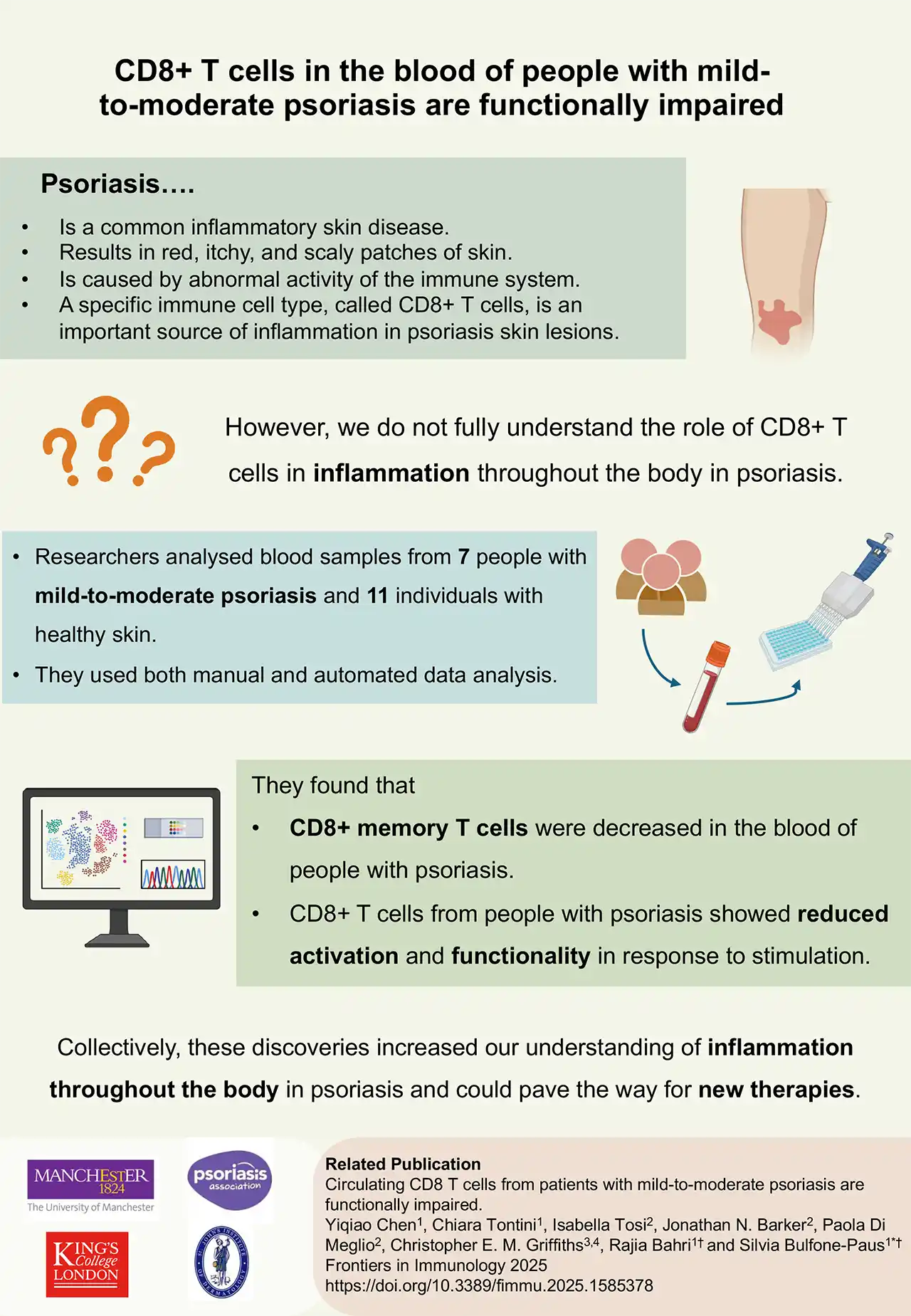
05.05.25
CD8+ T cells in the blood of people with mild-to-moderate psoriasis are functionally impaired
CD8+ T cells, also known as cytotoxic T cells, have been shown to play a key role in plaque psoriasis. They infiltrate psoriasis-affected skin areas and produce various inflammatory messenger molecules, which send signals to skin immune cells that promote the formation of psoriasis patches…
Read more

02.04.25
Improving understanding of the complex relationship between environmental factors and psoriasis through self-reported data: First findings from the mySkin study
The first findings from the mySkin study have been published in the British Journal of Dermatology (full paper available online here), delivering insight into the environmental factors that trigger the onset or worsening of psoriasis.
The mySkin project, launched in June 2023, has been co-developed by…
Read more

06.03.25
Non-Allergic Skin Reactions Associated with MOv18 IgE Cancer Immunotherapy
Antibodies are Y-shaped proteins made by the immune system that attach to foreign bodies, like bacteria, viruses or parasites, identifying them for destruction by immune cells. Immunoglobulin E (IgE) is a type of antibody associated with allergic reactions, and it has the potential to deliver a powerful immune response at much lower doses than existing cancer immunotherapy treatments that use other antibody types…
Read more
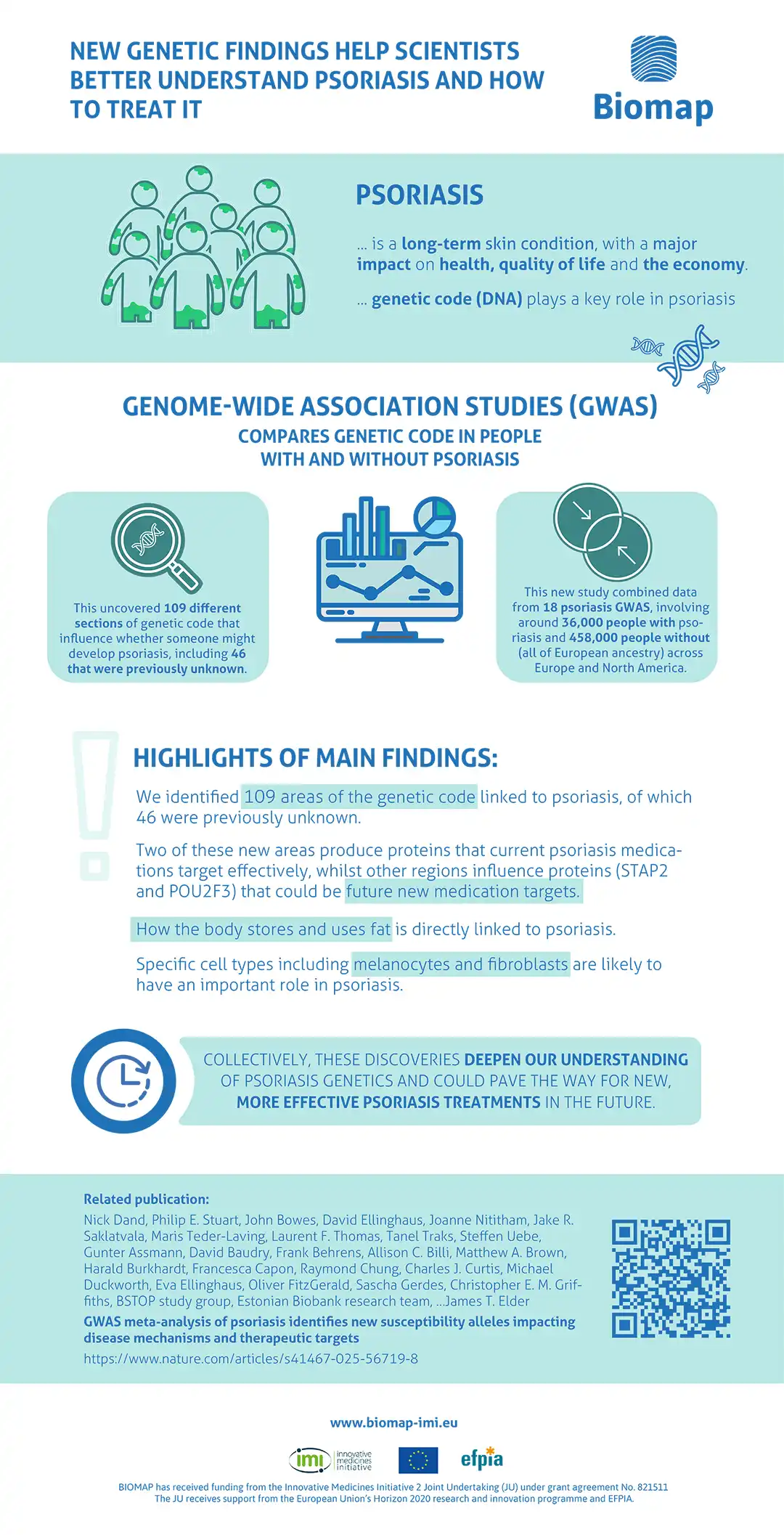
28.02.25
New genetic findings help scientists better understand psoriasis and how to treat it
Psoriasis is a long-term skin condition affecting 60 million people worldwide, with a major impact on health, quality of life and the economy. Our genetic code (DNA) plays a key role in psoriasis and researchers want to understand all the genetic differences between people that affect psoriasis risk. To study this, scientists use genome-wide association studies (GWAS) to compare the genetic code in people with and without psoriasis…
Read more

19.02.25
Genetic Risk Factors in Childhood Psoriasis
Psoriasis is a skin condition that results in scaly, discoloured patches of skin that cause itch and discomfort. It occurs due to problems in the immune system, and these problems have been linked to both genetic and environmental causes. A lot is known about psoriasis in adults, but not many studies have focused on psoriasis in children.
The Psoriasis in Adolescence study looks at several hundred teenagers…
Read more

17.02.24
Acceptability of ‘as needed’ biologic therapy in psoriasis: insights from a multistakeholder mixed-methods study.
Research published in the British Journal of Dermatology provides an overview of ‘as needed’ biologic therapy and its reception from people with psoriasis and healthcare professionals.
The full paper is available online here and the study is summarised below…
Read more

18.09.24
Exploring the link between Genetic Predictors of Cardiovascular Disease and Psoriasis
Evidence that genetic predictors of cardiovascular diseases also increase psoriasis risk
Our recent study explores the link between genetic predictors of cardiovascular diseases and their connection to psoriasis, a chronic skin condition…
Read more

30.01.24
Single-cell analysis of psoriasis resolution demonstrates an inflammatory fibroblast state targeted by IL-23 blockade.
New research maps early skin changes in people receiving successful psoriasis treatment.
Research published in Nature Communications provides a cell atlas of psoriasis skin during the first two weeks of biologic treatment. The full paper is available online here and you can read an overview of the study…
Read more

01.09.23
Real-World Implementation and Outcomes of Adalimumab Therapeutic Drug Monitoring in Psoriasis: A National Specialized Centre Experience
New research published in the Journal of Investigative Dermatology shows that blood tests to measure adalimumab concentration may help patients and form part of routine psoriasis care.
Psoriasis occurs when the immune system becomes overactive. Dermatologists can treat more severe psoriasis with a class of medication called ‘biologics’. One such medication is adalimumab…
Read more

